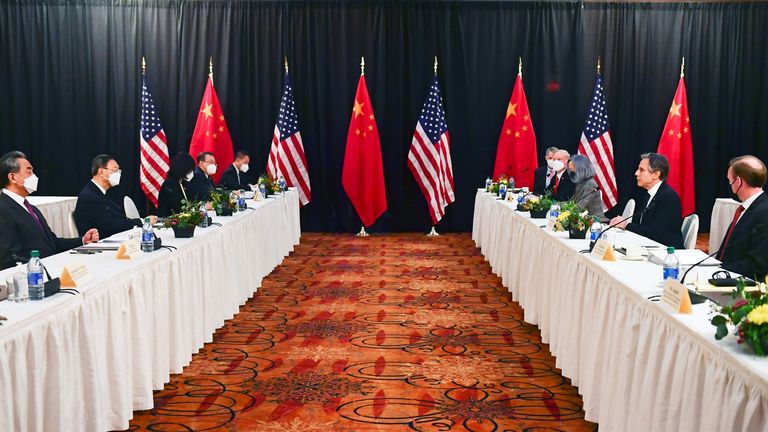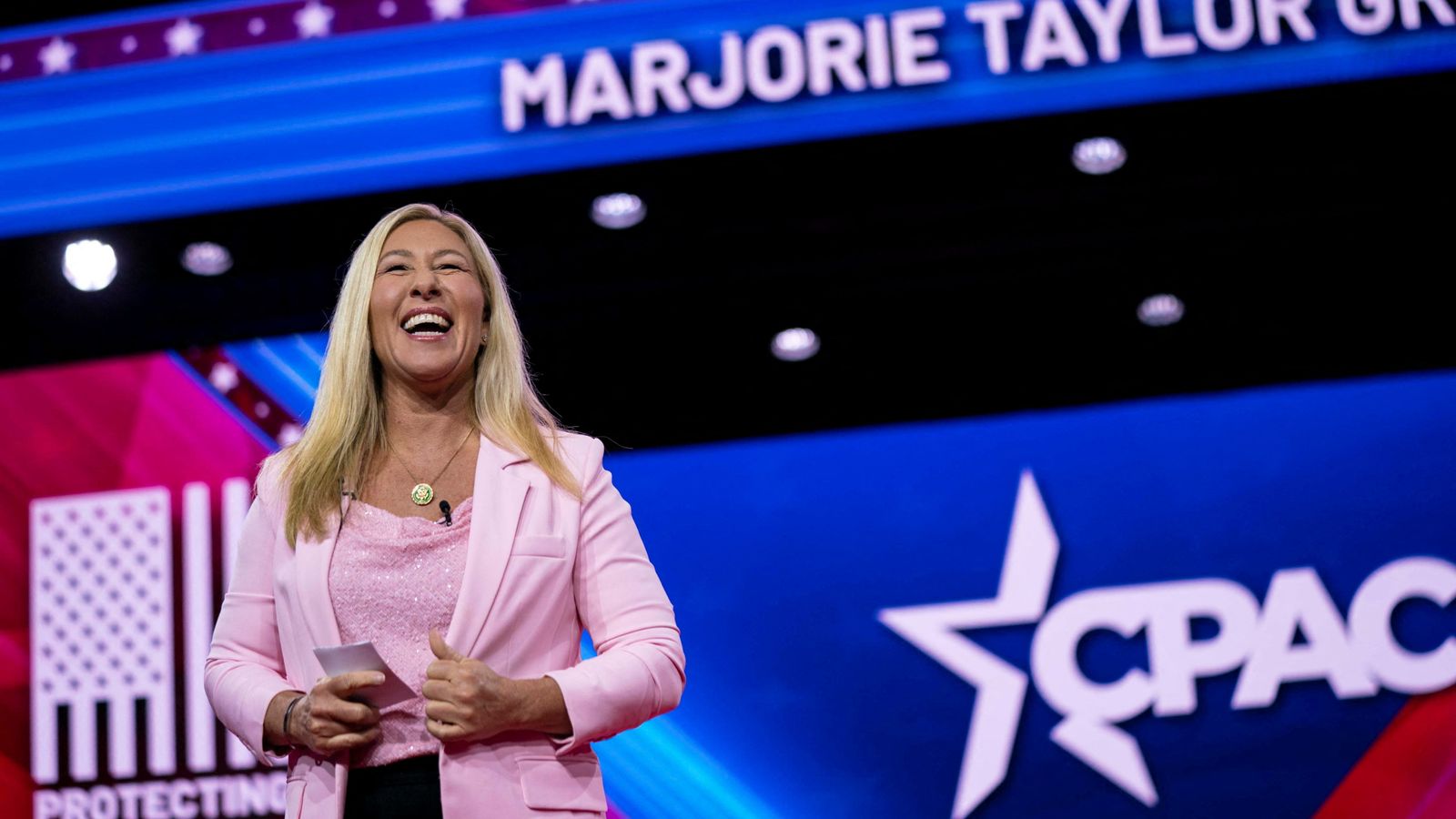US and Chinese officials have clashed during their first face-to-face meeting since Joe Biden became president.
US Secretary of State Antony Blinken and Chinese Communist Party foreign affairs chief Yang Jiechi shared with reporters their sharply different views of each other and the world at the beginning of the two-day talks in Alaska.
Relations between the world’s two largest economies were already tense before the two met thanks to trade disputes, the coronavirus pandemic, Beijing’s assertiveness over the South China Sea, and human rights in Tibet, Hong Kong and Xinjiang.
Mr Blinken said China’s actions “threaten the rules-based order that maintains global stability”, adding: “That’s why they’re not merely internal matters, and why we feel an obligation to raise these issues here today.”
But Mr Yang was having none of it, speaking for more than 15 minutes and criticising American democracy, its treatment of minorities, and its foreign and trade policies.
He said the US should “change its own image and stop advancing its own democracy in the rest of the world”, adding: “Many people within the United States actually have little confidence in the democracy of the United States.”
He said US officials had spoken for too long in their opening remarks, they were “inhospitable”, and made “unreasonable attacks and accusations of Chinese domestic and foreign policies and provok(ing) quarrels”.
He added: “The United States uses its military force and financial hegemony to carry out long arm jurisdiction and suppress other countries.
“It abuses so-called notions of national security to obstruct normal trade exchanges, and incite some countries to attack China.
“Let me say here that in front of the Chinese side, the United States does not have the qualification to say that it wants to speak to China from a position of strength… the US side was not even qualified to say such things even 20 years or 30 years back, because this is not the way to deal with the Chinese people.”
Mr Blinken appeared annoyed, saying: “The Chinese delegation… seems to have arrived intent on grandstanding, focused on public theatrics and dramatics over substance.”
He added: “I’m hearing deep satisfaction that the United States is back, that we’re re-engaged.
“I’m also hearing deep concern about some of the actions your government is taking.”
Mr Biden became US president in January and his administration has yet to formulate its China policy but they have vowed to work with China when it is beneficial, citing climate change and the coronavirus pandemic as examples.
Mr Blinken also said he hoped China would persuade North Korea to give up its nuclear weapons.
The administration has not said how it will handle the tariffs that were placed on Chinese goods under predecessor Donald Trump.
However, they have made it clear they will pay more attention to democratic values and allegations of human rights abuses by China.
Just days ago, Mr Blinken announced new sanctions over Beijing’s crackdown on democracy in Hong Kong, something that prompted China’s state councillor Wang Yi to say: “Certainly this is miscalculated and only reflects the vulnerability and weakness inside the United States and it will not shake China’s position or resolve on those issues.”
A US official summed up the mood before the talks began by saying: “We’re expecting much of these conversations will be pretty, pretty tough.”












